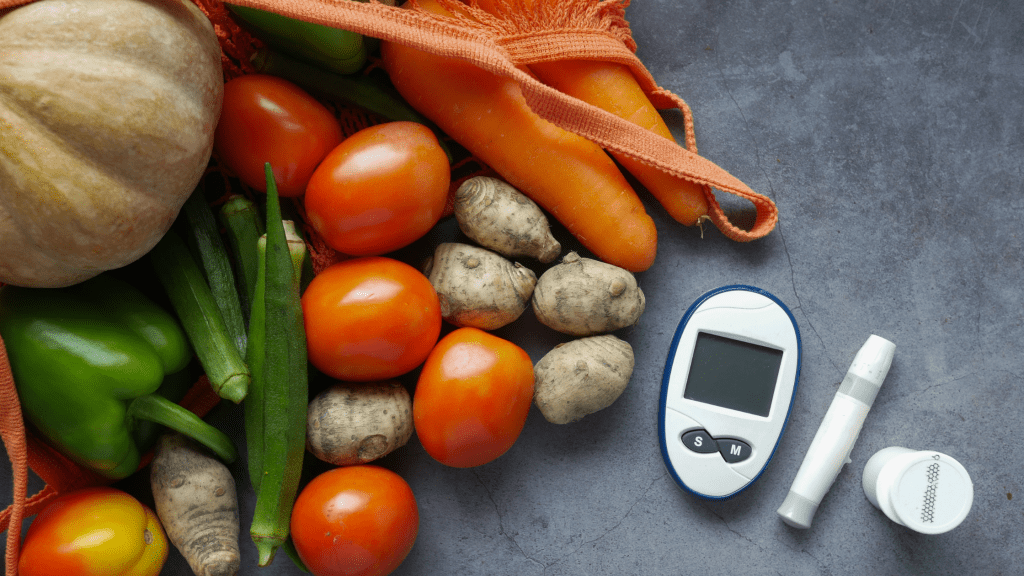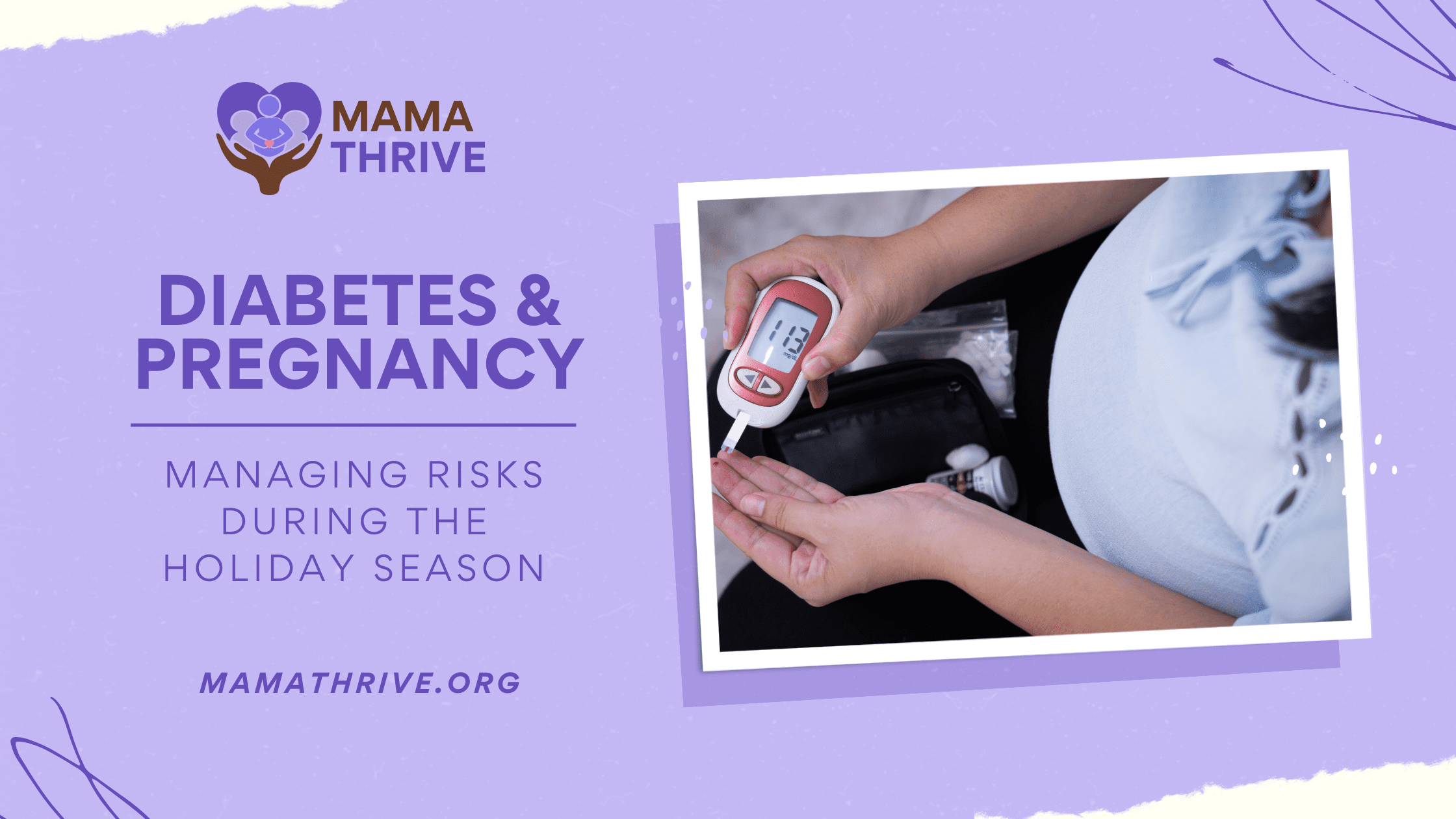The holiday season is a time of joy, celebration, and togetherness for many families across the United States. However, this is also an important time to bring awareness into diabetes and pregnancy. For expectant mothers dealing with gestational diabetes, this time of year can bring added challenges and concerns. Gestational diabetes is a condition that affects pregnant women, leading to elevated blood sugar levels. Managing diabetes and pregnancy is crucial for the health of both the mother and the baby, and the holiday season can present unique obstacles.
In this article, we will explore the challenges of managing gestational diabetes during the holiday season and provide dietary tips and guidance to help expectant mothers navigate this festive time while maintaining their health.
The Prevalence of Diabetes and Pregnancy
Gestational diabetes is a condition that warrants attention due to its prevalence among pregnant women in the United States. It’s crucial to comprehend the scope of this issue before discussing the challenges faced during the holiday season.
According to the Centers for Disease Control and Prevention (CDC), gestational diabetes affects approximately 2-10% of all pregnancies in the United States. This means that a significant portion of expectant mothers experiences this condition, highlighting the importance of awareness and proactive management.
Gestational diabetes occurs when the body’s natural insulin production is insufficient to meet the increased demands of pregnancy. This results in elevated blood sugar levels, which can potentially lead to complications for both the mother and the developing fetus. Given the prevalence of this condition, it is a matter of concern that necessitates effective management strategies.
The Health Risks of Gestational Diabetes to the Baby

Gestational diabetes not only poses health challenges for the expectant mother but also carries potential risks for the developing baby. Understanding these risks is essential for comprehending the urgency of managing gestational diabetes, especially during the holiday season when temptations for unhealthy food choices are abundant.
Macrosomia (Large Birth Weight)
One of the primary risks associated with gestational diabetes is macrosomia, which refers to a condition where the baby grows larger than average. High blood sugar levels in a pregnant mother can lead to excess glucose passing through the placenta to the baby. This excess glucose can stimulate the baby’s pancreas to produce more insulin, causing increased fat accumulation and overall growth. A larger baby can lead to complications during delivery, such as shoulder dystocia, where the baby’s shoulders get stuck during birth.
Hypoglycemia (Low Blood Sugar) in the Newborn
Babies born to mothers with gestational diabetes are at risk of experiencing hypoglycemia shortly after birth. This is because the baby’s own insulin production increases in response to the excess glucose from the mother. After birth, when the baby is no longer receiving the surplus glucose, their blood sugar levels can drop, resulting in hypoglycemia. It is essential to monitor the baby’s blood sugar levels and provide appropriate care if necessary.
Respiratory Distress Syndrome (RDS)
Babies born to mothers with gestational diabetes may have a higher risk of developing respiratory distress syndrome. This condition occurs when the baby’s lungs are not fully developed, making it challenging for them to breathe. RDS can be particularly problematic for preterm babies or those born via C-section due to complications related to macrosomia.
Jaundice
Jaundice is a common condition in newborns characterized by yellowing of the skin and eyes. Babies born to mothers with gestational diabetes may have a higher risk of developing jaundice. While jaundice is usually treatable, it requires monitoring and, in some cases, treatment with phototherapy.
Increased Risk of Obesity and Type 2 Diabetes
Babies exposed to high blood sugar levels in the womb may be at an increased risk of developing obesity and type 2 diabetes later in life. This emphasizes the importance of managing gestational diabetes not only for the immediate health of the baby but also for their long-term well-being.
The Impact of the Thanksgiving to Pregnancy
Now, let’s delve into the specific challenges that gestational diabetes presents during the holiday season, a time known for indulgent meals and festive gatherings.
- Indulgent Meals and Sweet Treats: The holiday season is synonymous with an abundance of delicious, high-calorie, and often high-sugar foods. Traditional dishes and sweet treats like pies, cakes, and candies are readily available and tempt even the most disciplined eaters. For expectant mothers with gestational diabetes, these temptations can be especially challenging to resist.
- Straying from a Balanced Diet: Managing blood sugar levels requires a carefully balanced diet. However, the holiday season can easily disrupt this balance. Consuming excessive carbohydrates and sugary foods can lead to sudden spikes in blood sugar, making it harder to maintain control.
- Stress: The holiday season, while joyful, can also be stressful. Planning gatherings, gift shopping, and other responsibilities can create emotional and mental stress. Stress hormones can affect blood sugar levels, potentially leading to fluctuations that need careful monitoring.
- Irregular Eating Patterns: Holiday schedules often involve irregular eating patterns. There may be a tendency to skip meals, indulge in larger portions, or eat at irregular times. These deviations from a regular meal routine can further complicate blood sugar control.
- Lack of Physical Activity: The holidays may also disrupt regular exercise routines. Colder weather, busy schedules, and travel can make it more challenging to stay physically active. Physical activity is crucial in managing blood sugar levels, and a reduction in activity during this season can impact control.
Managing Gestational Diabetes During the Holidays

Now that we’ve acknowledged the challenges, let’s explore some practical tips and guidance for managing gestational diabetes and pregnancy during the holiday season. Remember, it’s essential to consult with your healthcare provider to create a personalized plan that fits your specific needs and circumstances.
1. Monitor Blood Sugar Regularly
Consistent monitoring of blood sugar levels is key to managing gestational diabetes and pregnancy. During the holidays, it’s essential to monitor your levels more frequently, especially after indulging in holiday meals and treats. Keep a record of your readings to help identify any patterns or triggers.
2. Plan Your Meals
Take the time to plan your holiday meals in advance. Aim for a well-balanced plate that includes lean protein, fiber-rich vegetables, and whole grains. Avoid overloading on starchy or sugary dishes. Additionally, consider smaller, more frequent meals to help stabilize blood sugar levels throughout the day.
3. Be Mindful of Portions
Portion control is crucial when managing gestational diabetes. Instead of piling your plate high with holiday goodies, opt for smaller portions. Enjoy your favorite treats in moderation, and savor each bite.
4. Choose Healthy Alternatives
Swap out traditional holiday ingredients with healthier alternatives. For example, use whole wheat flour instead of white flour in baking, replace sugar with natural sweeteners like stevia or monk fruit, and opt for lean cuts of meat.
5. Stay Active
Physical activity plays a significant role in managing diabetes and pregnancy. Engage in light exercise like walking after meals, or consider incorporating some gentle yoga or stretching into your routine to help regulate blood sugar levels
Conclusion
Gestational diabetes and pregnancy can present unique challenges during the holiday season, but with careful planning and mindful choices, expectant mothers can enjoy the festivities while maintaining their health. Remember to consult with your healthcare provider for personalized guidance and monitoring.
As you navigate this joyful but challenging time, Mama Thrive is here to support you on your journey to a healthy pregnancy. We understand the importance of multicultural telehealth programs and are committed to providing the care and guidance you need. Happy Thanksgiving, and stay healthy!





